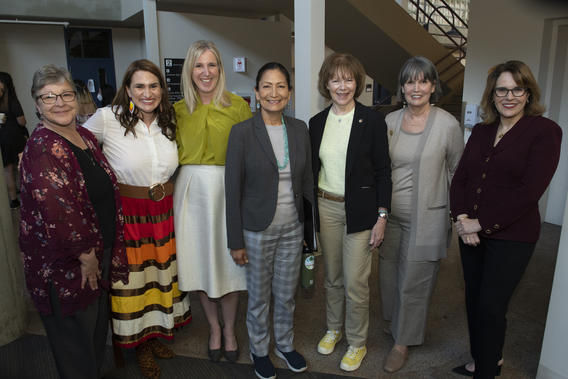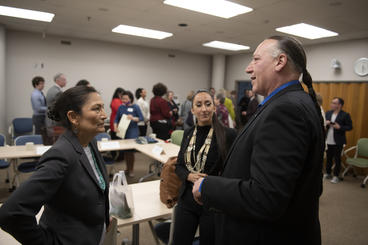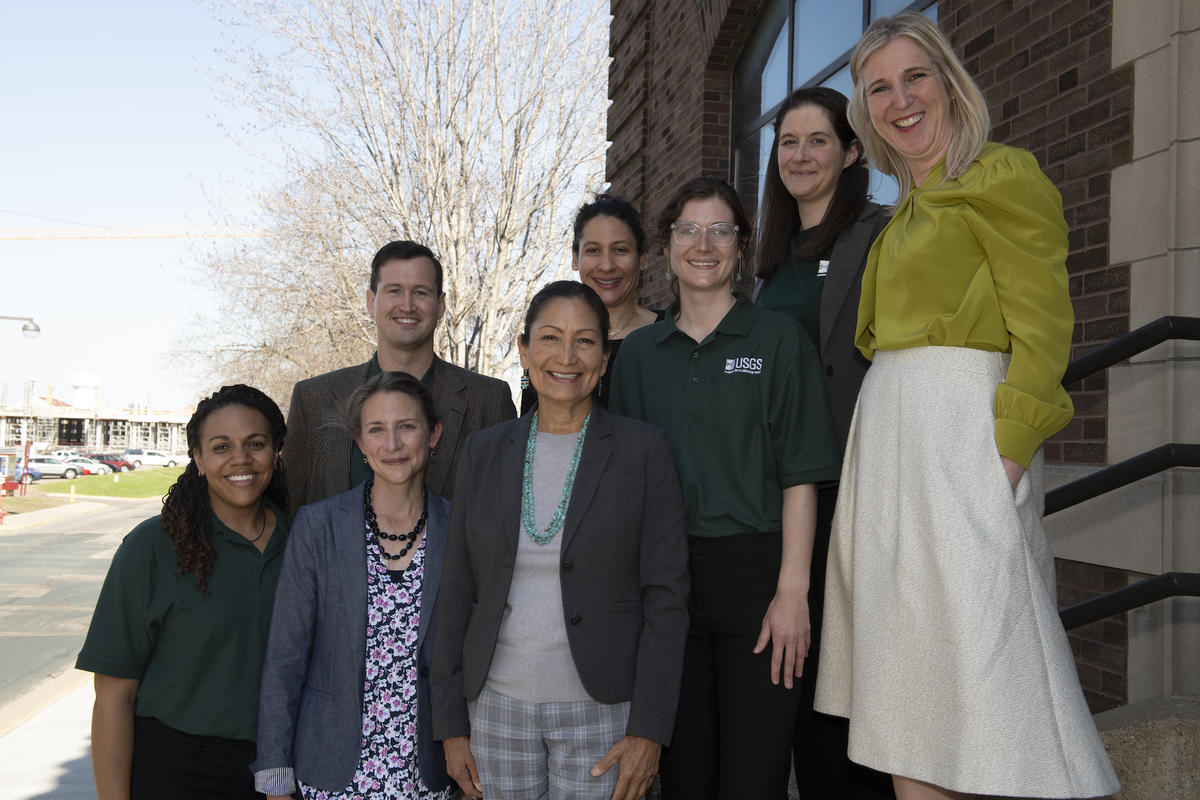
On May 6, 2022, United States Secretary of the Interior Deb Haaland visited the Midwest Climate Adaptation Science Center (MW CASC). Her visit focused on celebrating the launch of the MW CASC and discussing the importance of Indigenous knowledge in climate adaptation research.
Jessica Hellmann, Director of the Institute on the Environment and University Director for the MW CASC, welcomed Secretary Haaland and other guests to the University of Minnesota Twin Cities campus. She shared some background on the MW CASC’s founding in 2021 and its mission to advance research and build capacity in climate change adaptation in the Midwest.
Secretary Haaland then participated in a roundtable discussion on Tribal Adaptation. She was joined by several MW CASC staff, consortium members, and graduate students, including: Chris Caldwell, President of the College of Menominee Nation; Mike Dockry, Principal Investigator and Program Lead for Tribal Relations at the MW CASC; Karen Diver, Senior Advisor to the President for Native American Affairs at the University of Minnesota; Mic Isham, Executive Director of the Great Lakes Indian Fish and Wildlife Commission; Jeff Mears, Member of the MW CASC Advisory Committee and Executive Director of the Wisconsin Tribal Conservation Advisory Council; and Sara Smith, Tribal Resilience Liaison at the MW CASC and College of Menominee Nation. Participants shared their insight and experience related to Tribal, federal, and university collaboration and creating successful solutions for climate challenges facing Tribal communities in the Midwest. They discussed building strong partnerships, fostering sustained, meaningful engagement with Tribal resource managers and communities, and offering students meaningful career development opportunities and pathways to work with and for Tribes.
At the end of the day, Secretary Haaland was joined by state and university leaders at a reception to celebrate the MW CASC. In her opening remarks, Joan Gabel, President of the University of Minnesota, emphasized the importance of partnerships and collaboration to discover new ways of stewarding life-giving natural and cultural resources, particularly under climate change.

Lieutenant Governor Peggy Flanagan highlighted the accomplishments of the University of Minnesota on climate science and thanked students and faculty for leading the way on the “life-saving” work of climate adaptation. She also shared her excitement about the MW CASC’s emphasis on collaboration and Indigenous knowledge. “The solutions are all right here – in our people, in our ways of knowing, and I feel hopeful… we can tackle big problems together.”
Representative Betty McCollum spoke about the lessons we have learned in Minnesota about treating natural resources with respect, righting past wrongs, and preventing environmental harm. Those lessons, she said, will inform the work of the MW CASC.
Senator Tina Smith spoke about the bold action needed to combat climate change – that we don’t just need to understand the changes that are happening, we need to bake that knowledge into the decisions we make to adapt and become more resilient. She also emphasized the power of building Indigenous thinking into this work from the very beginning.
Secretary Haaland spoke about how the climate crisis disproportionately impacts communities of color and poor families. She praised the MW CASC’s “deep and respectful” partnerships, which allow experts from federal and state agencies, universities, Tribal Nations, nonprofits, and the communities on the front lines of the climate crisis to join in the scientific process and create their own solutions. “This center bridges knowledge institutions and resource management to help our lands, waters, and wildlife adapt to new conditions.”
Secretary Haaland said she was impressed by the strength and enthusiasm of the University of Minnesota as the MW CASC host institution, and inspired by the MW CASC graduate students. “These students, and this new center, make it clear that the future of the Midwest’s natural heritage is in good hands,” she said. “It is this innovation and commitment to equity that gives me hope for the future.”

